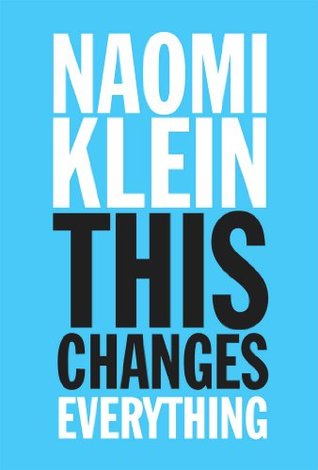More on this book
Community
Kindle Notes & Highlights
by
Naomi Klein
Read between
May 16 - July 11, 2025
For us high consumers, it involves changing how we live, how our economies function, even the stories we tell about our place on earth. The good news is that many of these changes are distinctly un-catastrophic. Many are downright exciting.
Because what the “moderates” constantly trying to reframe climate action as something more palatable are really asking is: How can we create change so that the people responsible for the crisis do not feel threatened by the solutions? How, they ask, do you reassure members of a panicked, megalomaniacal elite that they are still masters of the universe, despite the overwhelming evidence to the contrary?
Indeed, favoring local industry constitutes illegal “discrimination.” This was a flashpoint in the free trade wars back in the 1990s, precisely because these restrictions effectively prevent governments from doing what Ontario was trying to do: create jobs by requiring the sourcing of local goods as a condition of government support. This was just one of the many fateful battles that progressives lost in those years.
For instance, emissions from the transportation of goods across borders—all those container ships, whose traffic has increased by nearly 400 percent over the last twenty years—are not formally attributed to any nation-state and therefore no one country is responsible for reducing their polluting impact.
According to a 2009 Harvard Medical School study, as many as 45,000 people die annually in the United States because they lack health insurance. As one of the study’s coauthors pointed out, this works out to about one death every twelve minutes.
During good times, it’s easy to deride “big government” and talk about the inevitability of cutbacks. But during disasters, most everyone loses their free market religion and wants to know that their government has their backs.
The environmental crisis—if conceived sufficiently broadly—neither trumps nor distracts from our most pressing political and economic causes: it supercharges each one of them with existential urgency.
Extractivism is a nonreciprocal, dominance-based relationship with the earth, one purely of taking. It is the opposite of stewardship, which involves taking but also taking care that regeneration and future life continue.
The earth is not our prisoner, our patient, our machine, or, indeed, our monster. It is our entire world. And the solution to global warming is not to fix the world, it is to fix ourselves.
When we marvel at that blue marble in all its delicacy and frailty, and resolve to save the planet, we cast ourselves in a very specific role. That role is of a parent, the parent of the earth. But the opposite is the case. It is we humans who are fragile and vulnerable and the earth that is hearty and powerful, and holds us in its hands. In pragmatic terms, our challenge is less to save the earth from ourselves and more to save ourselves from an earth that, if pushed too far, has ample power to rock, burn, and shake us off completely.
This ecological despair was a big part of why I resisted having kids until my late thirties. For years I joked about giving birth to a Mad Maxian climate warrior, battling alongside her friends for food and fuel. And I was also fully aware that if we were to avoid that future, we would all have to cut down on the number of super-consumers we were producing. It was around the time that I began work on this book that my attitude started to shift. Some of it, no doubt, was standard-issue denial (what does one more kid matter . . . ). But part of it was also that immersing myself in the
...more
It’s not that I got in touch with my inner Earth Mother; it’s that I started to notice that if the earth is indeed our mother, then far from the bountiful goddess of mythology, she is a mother facing a great many fertility challenges of her own. Indeed one of the most distressing impacts of the way in which our industrial activities affect the natural world is that they are interfering with systems at the heart of the earth’s fertility cycles, from soil to precipitation.
What if part of the reason so many of us have failed to act is not because we are too selfish to care about an abstract or seemingly far-off problem—but because we are utterly overwhelmed by how much we do care? And what if we stay silent not out of acquiesence but in part because we lack the collective spaces in which to confront the raw terror of ecocide? The end of the world as we know it, after all, is not something anyone should have to face on their own.


